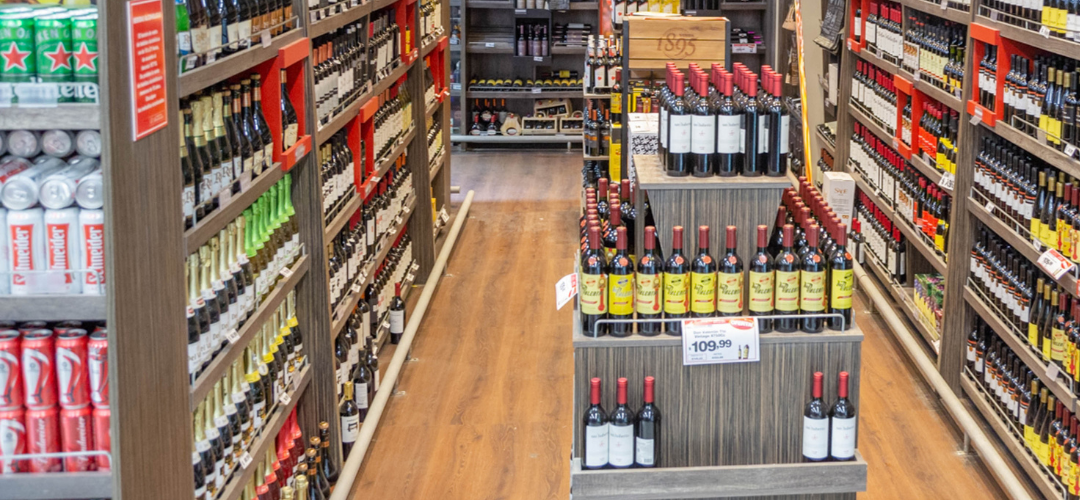Navigating the Big Brand Challenge in the Drinks Industry
With supermarkets and retailers likely to be paying more attention than ever to shelf price and profit margins, what can small or independent drinks brands do to navigate the situation?
The ‘Big Brand Challenge’ came to fame recently when a dispute between Tesco and mammoth brand Kraft Heinz hit the national news.
At the peak of the pricing dispute, Heinz stated that they had to raise their prices due to “today’s challenging economic environment”, whilst Tesco justified their refusal to stock the items at the higher price point by saying they were “laser-focused on keeping the cost of the weekly shop in check”. So, who’s in the right? We won’t attempt to answer that question, but instead answer one that’s more potent for our industry…
With supermarkets and retailers likely to be paying more attention than ever to shelf price and profit margins, what can small or independent drinks brands do to navigate the situation?
Here are some things to pay heed to when considering off-trade, whether or not you want to add Tesco to your list of stockists.
Brand Loyalty
Many consumers are incredibly loyal to specific brands, a fact which is especially true within the drinks industry. It’s not uncommon for a drinks brand to ‘recruit’ a loyal customer base in their 20s, and for those customers to remain loyal throughout their lives. But this loyalty doesn’t happen at random, it’s largely due to strategic investment and efforts on the brand’s part.
So, knowing your customer base; ‘recruiting’ new customers at the appropriate time; understanding when you will need to recruit; and tailoring all your branding and marketing efforts in line with this customer recruitment – is key to creating that brand loyalty that will keep your stock desirable to both customers and stockists alike.
Side note – in relation to the ‘Big Brand Challenge’ it could be said that Tesco’s refusal to stock products they deem to be ‘overpriced’ is a protection of its own brand loyalty. As consumers shop household staples and notice higher prices, they are just as likely to pay criticism to the Supermarket, as they would the provider of the goods itself.
Share of the Shelf
As well as brand loyalty, share of the shelf needs to be added to any drinks brand’s list of considerations. A key part of increasing share of shelf is diversifying the product range; not just having one ‘gem’, but instead having a range of products. This could be a variant in bottle size or flavour, but either way it will strengthen your brand’s position from the perspective of the consumer, and of the retailer.
Data, Data, Data
Underpinning all your efforts, be they brand or consumer related, is data. Across all revenue streams, being obsessive about collecting sales data is a good behaviour to adopt.
To inform your efforts you want to understand your sector; your competitive sets; the end consumer; their behaviours, habits, affluence, and demographics. As well as informing your efforts, this will also enable you to speak to retailers in a language they understand - you’ll sound knowledgeable, informed and in possession of all the facts.
When it comes to speaking to retailers about stocking an item, you’ll find that any information you provide is scrutinised, or even challenged, as they refer to their own abundance of data. So, to use the age-old cliché ‘knowledge is power’ - the more you know, the better prepared you’ll be for these, sometimes, tricky conversations.
Being Considerate of Costs
Many retailers are well-established brands, who sell an enormous amount of private label products. This means they understand the costs, to a fraction of a penny, to manufacture and sell, as well as the commodities index and the impact of economical factors on the end consumer.
‘Brand Tax’ is the phrase retailers often use to refer to the difference between the true cost of goods and the price manufacturers want to sell it for (in simplified terms) – which obviously includes profit. This is the statistic that is closely monitored and that, combined with the prior, means that there will only be a little room for negotiation on price.
Good practice would be to, in terms of your costs, continually react to external influences like the cost-of-living crisis, interest rate rises or the increase of household energy costs. Because the retailers certainly will be.
Parting Words of Wisdom
As well as all of the above, make sure you do your utmost to be a reliable partner, which means maintaining high-quality standards, keeping your promises and honouring agreements made. In this industry, mistakes last in people’s minds a lot longer than successes do and there’s always someone snapping at your heels to fill your place!
Small and independent drinks brands can be more flexible and accommodating for retailers, so make sure you pass this adaptability on, react quickly, and keep on top of stock levels and point of sale. This way - you’re more likely to compete with the larger brands in a supermarket setting.

